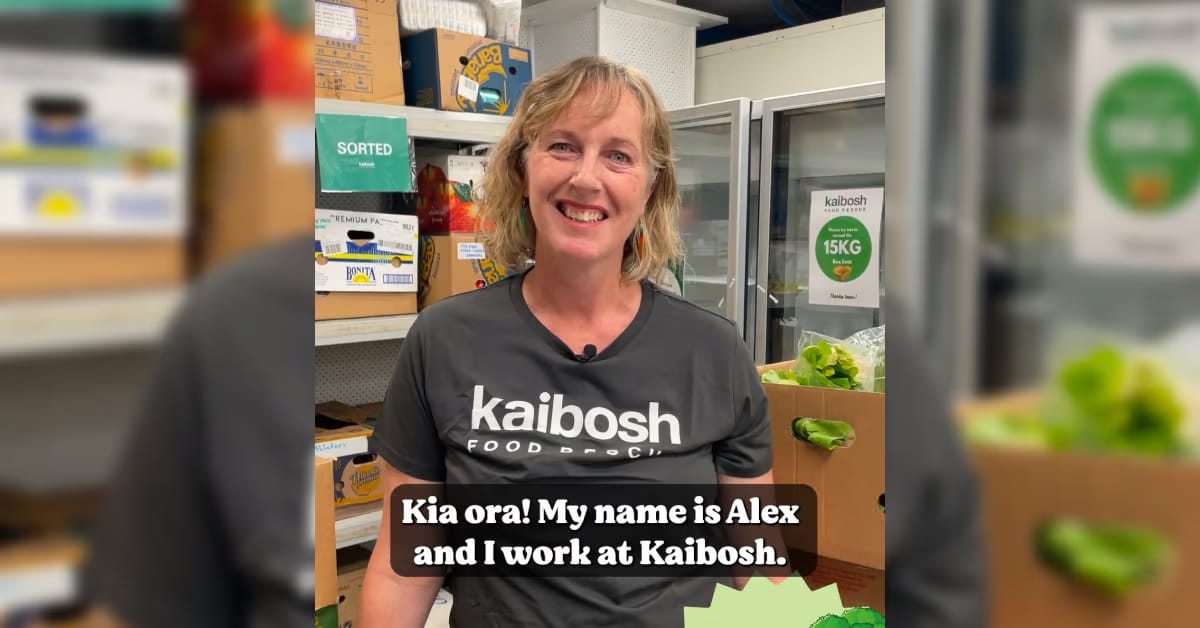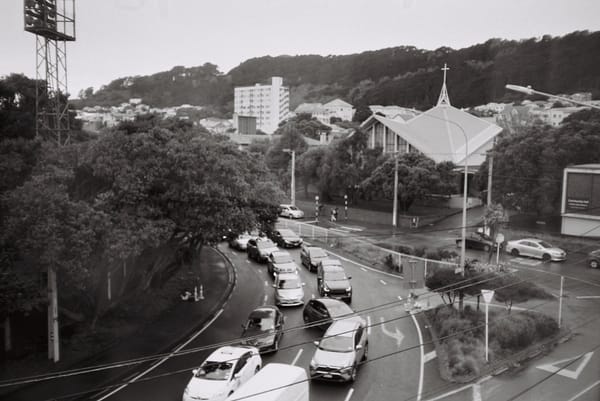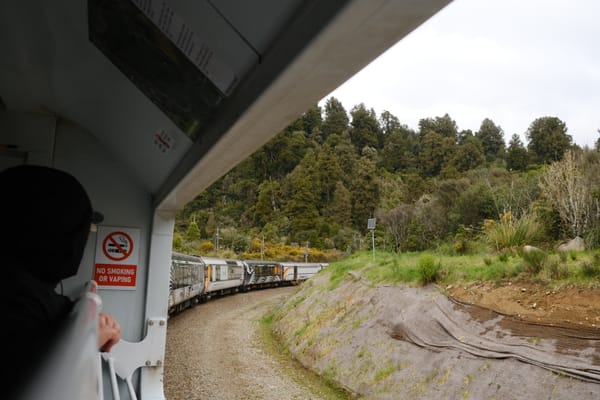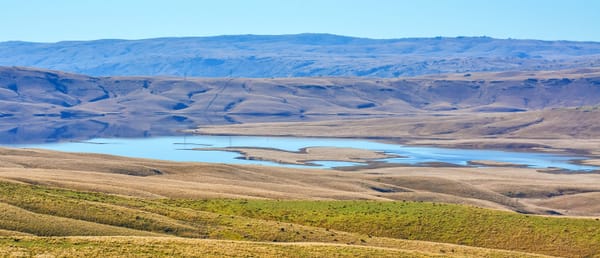Can we solve hunger and climate change at the same time?

I need to admit something. I feel thrilled by climate change. It’s not because I want bad things to happen, or revel in the idea of a hotter climate.
I am thrilled by climate change because it is a fantastic catalyst for smart people to solve an unprecedented problem. Human beings have gotten healthier and wealthier since the beginning of our species by polluting. We’ve never lived life any other way. So, how do we provide every person a good quality of life without polluting anything to do it?
Every single answer to that question, from the invention of electric cars to changing how we make steel, is a stunning innovation. People need to come up with new technology, new supply chains, new ways of harvesting, new ways of generating electricity. Society is being completely remade and we’re getting to live through it.
When I feel despondent about the slowness of national action, or bullshit marketing tactics to greenwash, I feel energised by local action. There are countless incredible organisations doing innovative work to support our people and tackle our carbon emissions at the same time. In each of these organisations are dedicated people like you and me willing to take community action to do our bit to solve the problem.
I’m lucky enough to know some of the people in these organisations and ask them questions about how they’re contributing to this transformation.
The first person kind enough to discuss this with me is Alex MacGibbon from Kaibosh Food Rescue. Kaibosh to me is a fantastic example of a community organisation building a better future for Aotearoa and the world. They’re showing what is possible when we solve climate change: a society with a flourishing environment and nobody going hungry.
Let’s look into food waste as a problem…
Eliminating food waste is a crucial part of solving climate change. From production to our cutting boards, food waste is responsible for at least 6% of global emissions in 2023. That’s three times more pollution than aviation is responsible for.
According to Alex, wasted food is lost across the entire track from growing food to being used in our homes. Approximately 40% of food waste happens in growing and processing food, about 10% is lost when the food is in the supermarkets, and about 50% happens at home.
It can be lost for many different reasons: an odd looking agria potato doesn’t meet quality standards, a product isn’t sold before its best-before date at PAK'nSAVE, or leftovers go bad in the fridge.
Each household in New Zealand wastes approximately $1,500 worth of food every year. For me and my partner, that would be the same as buying $120 of groceries a week and throwing every last gram of it away for three months. Not only is food waste a climate problem, it’s a huge financial problem.
And at the same time, 16% of New Zealanders don’t have enough food. We have enough food to waste billions of dollars worth every year, but people still go hungry.
This is a heart wrenching challenge, but also a fantastic opportunity. As a species, we’ve solved the problem of growing enough food for everyone. We have oodles of food and the problem is now how to use every last kilogram we produce. It’s a challenge that’s so exciting to solve.
Enter Kaibosh, a community organisation that is solving food waste.
Kaibosh is a Wellington organisation committed to eliminating food poverty by eliminating food waste. They have stopped nearly 11,000 tonnes of carbon dioxide from entering the atmosphere since 2008 and provided over 11.5 million meals.
Kaibosh has achieved those fantastic outcomes by partnering with food producers and retailers to take good quality food, rescue it from going to waste, and give it for free to community organisations who can provide to those in need.
I met Alex and the team at Kaibosh through my day job at Aro Digital – we were doing fundraising campaigns for them and as a designer I learnt about their work and got to explain the good they do. I loved their work so much I’ve decided to donate $60 a month to their mahi out of my charity budget.
Kaibosh has a couple of hundred volunteers who collect food from participating food retailers, sort and organise it, and deliver it to places like Everybody Eats and Ōrongomai Marae. Most of their food comes from supermarkets like Kilbirnie PAK'nSAVE and my local Sunday Harbourside Market.
They’ve challenged the assumptions that come with food quality – there is a stunning print-out in their warehouse which describes how long something will last past its best before date. Misunderstandings about what these mean leads to great food being binned for no good reason.
Alex describes the way Kaibosh works as more like a small business than a charity. They have an entrepreneurial spirit to them: they are always exploring new ideas and ways to reduce food waste across the process. They are nimble and action oriented.
For example, they have a new project to solve the problem of wasted food at the moment of harvest. Their Second Harvest project is a partnership with Levin growers to collect vegetables like agria potatoes that didn’t pass grading for supermarket buyers so it can be distributed across the region. Since they started this partnership, they’ve been rescuing a tonne a week of agria potatoes and onions. Per week.
Their local, community-driven focus has helped them develop new solutions to complex problems too. When volunteers noticed a lot of slightly bruised produce coming into their warehouse, they started wondering how to rescue that food while staying mana enhancing for people receiving kai. That’s how their Petone kitchen was born. With their kitchen, they can take this food and transform it into kai like crumbles and stewed fruits, which organisations can use to feed people who need kai. Plus, it plays to the strengths of their volunteers like Penny, who has strong cooking skills that were the perfect fit.
I think this ethos is exactly what we need when solving climate change. When you look closely, you can find that ethos across Wellington. Alex told me about the Regional Kai Network, which is a collection of all sorts of community based organisations working to make sure every Wellingtonian has access to good kai.

Across the Wellington region, countless people are working to make our food system fit for purpose in the 21st century. Community gardens are being tended, rescued kai is being cooked and served for free for those who need it, and growers are using new techniques to reduce waste and their impact on the planet.
That’s the most hopeful thing that came out of my conversation with Alex. When they talk with people baking bread or growing potatoes, everyone involved in food wants to see people eating that food. Farmers want to be part of the solution to food waste because they put their love and hard work into growing food so people will eat it. Everyone has a reason to solve this problem.
This is what a sustainable world could look like.
Isn’t this thrilling? When I look at Kaibosh’s warehouse or see the community gardens in the central city, I see a glimpse of the new world we are building. It won’t just avoid the worst of climate change, it will improve everyone’s lives.
It’s a world where everyone gets enough food to eat. It’s a world where communities are connected to the land and each other by being involved in making their own food, even in the middle of a city. It’s a world where people have more money to spend on things they love rather than food they’ll send to landfill. Best of all, it’s a world that improves people’s lives without needing to pollute to do so.
The fact that our cars, cows and discarded kai are warming the world is a scary prospect. The silver lining though is that the world is bursting at the seams with solutions that are thoroughly, incredibly, wonderfully good.
One of my favourite things about humanity is that we can never stop solving problems. Climate change is a big problem, and the relentless pursuit of thousands of people means it will be solved and our world will be better. That is nothing short of thrilling.





